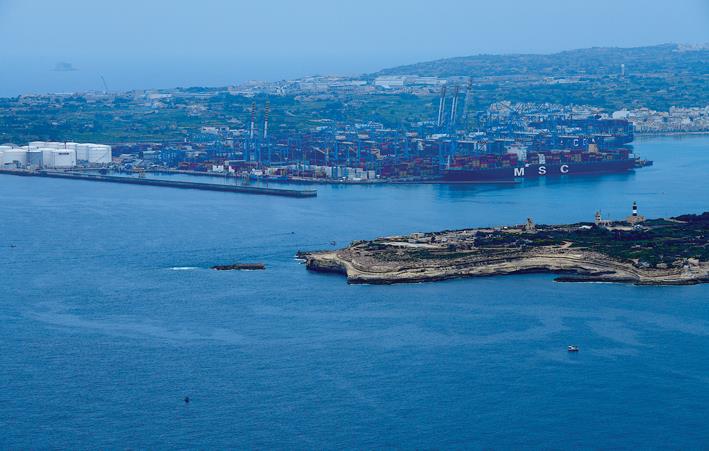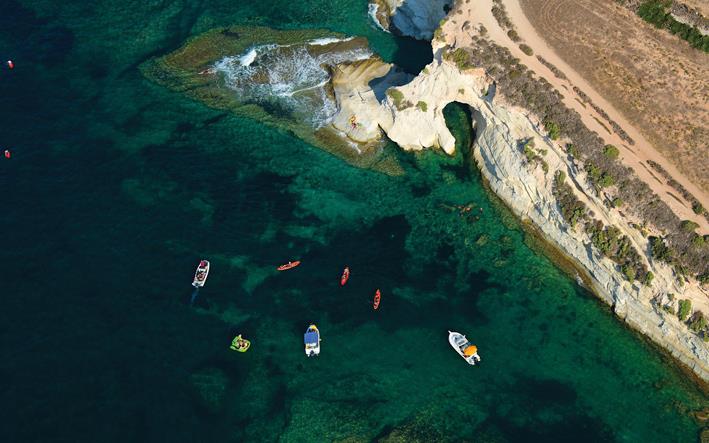At a time when much seems mutable and unsettled around the world, with facts and figures often misused and distorted, it is essential to recall that it should not be this way. Scientific research and innovation have very often led to progress and prosperity in the face of challenges, so there needs to be an endless thirst and relentless pursuit for accurate knowledge. From climate change to thoughtless human behaviours, the impacts on nature, ecosystems, biodiversity and the goods and services these provide to humanity are at risk.

Sustainable development, used to light up the responsible path to progress through socio-economic and environmental considerations and awareness, has often been misunderstood as profit-making at all costs. As blue economies and maritime industry target new improved ways of welcoming progress in respect of environmental, societal and governance requirements it is relevant to bear in mind what is at stake and how extensive the need for detailed and updated data of both marine and maritime environments is.

The University of Malta Maritime Platform (UMP), composed of academic researchers, is pushing forward essential recognition of science and scientific investigations to allow for new discoveries to pave the way toward new frontiers in resolving the challenges the marine environment, maritime related developments and industries are facing. Technology has advanced in various ways, opening new doors for effective applications with information that aids timely mitigation and management.

Taking the emerging urgent need to assess and monitor for biodiversity protection the use of accurate tools to achieve this may still be less familiar to policy makers and managers who need to be assisted in understanding the information provided for clear translation of results into opportunities for effective action.
For example, The Conservation Biology Research Group at the University of Malta (CBRG-UM) has pioneered some of the innovative applications of technology to accurately investigate marine biodiversity and vulnerable species and populations. Through decades of research specialisations on molecular analyses of DNA of innumerable wild species, it has remained at the forefront of accurate identification of species through genetic identity and further applied genetics to understand the population status and structure of various local to globally distributed species.
But why use highly technological methods over and above field observations and data collection to assess marine life and the way this is changing? In various recent discoveries the CBRG-UM, which is also represented in the UMP, allowed for a better understanding of distribution and reproductive needs of the marine turtle species (Caretta caretta) that lays its eggs on Maltese beaches. As each individual carries its own unique DNA, which is linked to its past generations of relatives, investigating specific sequences of this DNA helps researchers understand the links between individuals found in Maltese waters and the rest of their population within and beyond the Mediterranean Sea. It is possible to understand the number of times each female has managed to find diverse partners to mate with before conceiving the clutch of fertilised eggs that is laid in a sandy bay while also understanding the number of times each female interrupts her egg-laying to move to another beach. Molecular genetics reveals the status of the genetic diversity present in the species population, which is an essential element allowing the population to thrive in changing environmental conditions. The greater the genetic diversity present in a population the better options for species' survival in the face of changing diseases and climate change scenarios.
While field research undertaken by boat, plane or satellite allow for the distribution of vulnerable species such as marine turtles to be measured up to a certain extent, molecular genetics takes researchers beyond the current spatial-temporal setting of field research.
Such knowledge may supply much more to managers and policy makers to address requirements effectively for generations to come. What may affect selection of beaches for nesting? What disturbs nesting females? What may affect the health of the young turtles from nest to adulthood? What distances do adults traverse in open seas allowing them to intermingle and reproduce with other members of their population? What areas are essential for their feeding, growth and reproduction? There are so many questions that need a reply to be able to approach management strategies in a meaningful way.
Integrating more and more innovative technologies and scientific methods are at the forefront of building a clearer and fuller picture of species' needs and ecosystems' functions, which empowers suitable management avoiding long-lasting impacts.
As time passes, rapid marine and maritime developments, through new trendy processes such as the blue economy, demand more from natural resources and therefore more information to plan responsibly for sustainability is essential.
The evolving maritime industry must also address its challenges and responsibilities, which benefits from the surge of innovative research that paves the way to improvements through the increment of feasible and sustainable options.
Holistic planning needs to be able to deal with replying to questions relating to biodiversity conservation while replying to questions that relate to maritime developments and fast-changing marine environments. Integrating knowledge from various fields is not easy but is becoming more possible as technology advancements aid this process.
To showcase some of the brilliant innovations and encourage dialogue for improving our prospects aligning with marine and maritime targets, the UMP is organising the international conference, Innovation in Marine and Maritime Sustainable Developments: Research and Applications, between 7 and 9 May. Registrations are open to all those eager to learn and share experiences while contributing to recommendations that this conference will prepare for national and European consideration.
For further details about the conference visit https://www.um.edu.mt/events/umpc2025/ and for more information on the UMP and CBRG-UM contact Prof. Vella on: [email protected]

Professor Adriana Vella, PhD Cambridge, is Chair of the University Maritime Platform and leading scientist of the Conservation Biology Research Group at the University of Malta